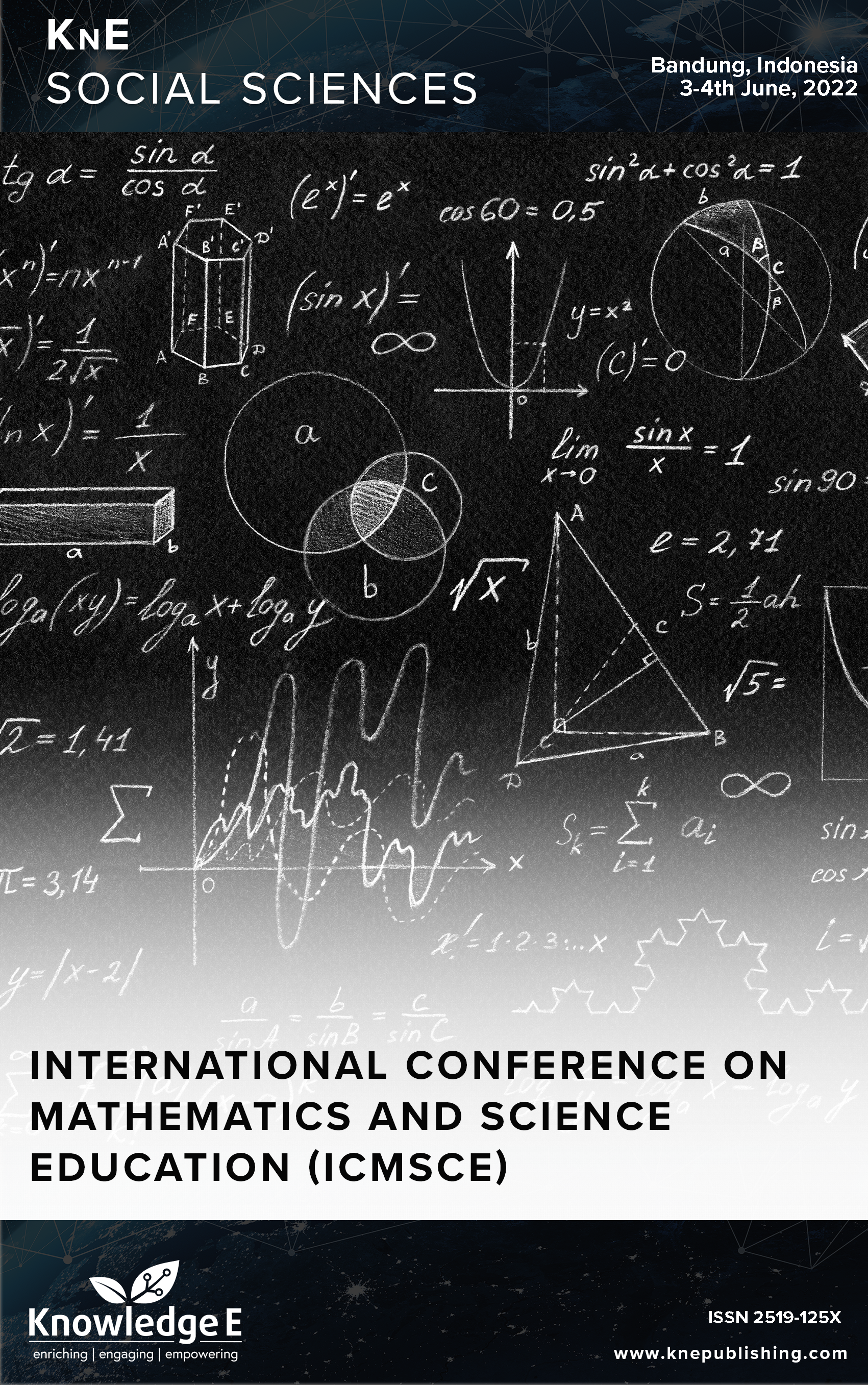The Online Game Design Uses Scratch, Geogebra, and Geogebra AR Through Mathematics Education Multimedia Lectures
DOI:
https://doi.org/10.18502/kss.v9i8.15618Abstract
This study aims to design online mathematics games using Scratch, Geogebra, and Geogebra AR through multimedia education mathematics courses. This study used the multimedia development life cycle. Participants in the study were 41 students (13 male and 28 female) of fifth-semester in a multimedia course in mathematics education at a university in West Java, Indonesia. The research instrument was a questionnaire through Google Forms, performance appraisal, observation, and interviews. Based on the research results it is known that Scratch, Geogebra, and Geogebra AR can be used in math game design even though previous students have not studied both, but the results are good. The author suggests that students can try out these math games at school during research or teaching practice. In addition, the authors hope that the game can be published on the internet so that it can be used by many students.
Keywords: game online, scratch, geogebra AR
References
Spiteri M, Chang Rundgren SN. Literature review on the factors affecting primary teachers’ use of digital technology. Technology, Knowledge and Learning. 2020;25(1):155128. DOI: https://doi.org/10.1007/s10758-018-9376-x
Tokac U, Novak E, Thompson CG. Effects of game-based learning on students’ mathematics achievement: a meta-analysis. J Comput Assist Learn. 2019;35(3):407– 20. DOI: https://doi.org/10.1111/jcal.12347
Patahuddin SM, Rokhim AF. “Website permainan matematika online untuk belajar matematika secara menyenangkan.” Jurnal Pendidikan Matematika. vol. 3, no. 2, 2013. https://doi.org/10.22342/jpm.3.2.332. DOI: https://doi.org/10.22342/jpm.3.2.332.
Resnick M, Maloney J, Monroy-Hernández A, et al. “Scratch: programming for all.,” communications of the acm. vol. 52, no. 11, pp. 60–67, 2009. DOI: https://doi.org/10.1145/1592761.1592779
Hansun S. Scratch pemrograman visual untuk semuanya. Jurnal ULTIMA InfoSys. 2014;5(1):41–8. DOI: https://doi.org/10.31937/si.v5i1.218
Maloney J, Resnick M, Rusk N, Silverman B, Eastmond E. The scratch programming language and environment. ACM Transactions on Computing Education. 2010;10(4):1–15. DOI: https://doi.org/10.1145/1868358.1868363
Meerbaum-Salant O, Armoni M, Ben-Ari M. “Learning computer science concepts with scratch.” In: Proceedings of the Sixth international workshop on Computing education research. pp. 69–76, 2010. DOI: https://doi.org/10.1145/1839594.1839607
Kusuma GP, Wigati EK, Utomo Y, Putera Suryapranata LK. Analysis of gamification models in education using mda framework. Procedia Comput Sci. 2018;135:385–92. DOI: https://doi.org/10.1016/j.procs.2018.08.187
Direito I, Pereira A, Duarte AM. Engineering Undergraduates’ Perceptions of Soft Skills: Relations with Self-Efficacy and Learning Styles. Procedia Soc Behav Sci. 2012;55:843–51. DOI: https://doi.org/10.1016/j.sbspro.2012.09.571
Albano G, Arzarello F, Dello Iacono U. Digital inquiry through games. Technology, Knowledge and Learning. 2021;26(3):577–95. DOI: https://doi.org/10.1007/s10758-020-09459-1
Moomaw S. Assessing the difficulty level of math board games for young children. J Res Child Educ. 2015;29(4):492–509. DOI: https://doi.org/10.1080/02568543.2015.1073201
Sugiarto H. Penerapan multimedia development life cycle pada aplikasi pengenalan abjad dan angka [Indonesian Journal on Computer and Information Technology]. IJCIT. 2018;3(1):26–31.
Rosenberg MJ. Beyond e-learning: approaches and technologies to enhance organizational knowledge, learning, and performance. John Wiley & Sons; 2005.
Sudihartinih E, Novita G, Rachmatin D. Desain media pembelajaran matematika topik luas daerah segitiga menggunakan aplikasi scratch. Jurnal Cendekia : Jurnal Pendidikan Matematika. 2021;5(2):1390–8. DOI: https://doi.org/10.31004/cendekia.v5i2.601

